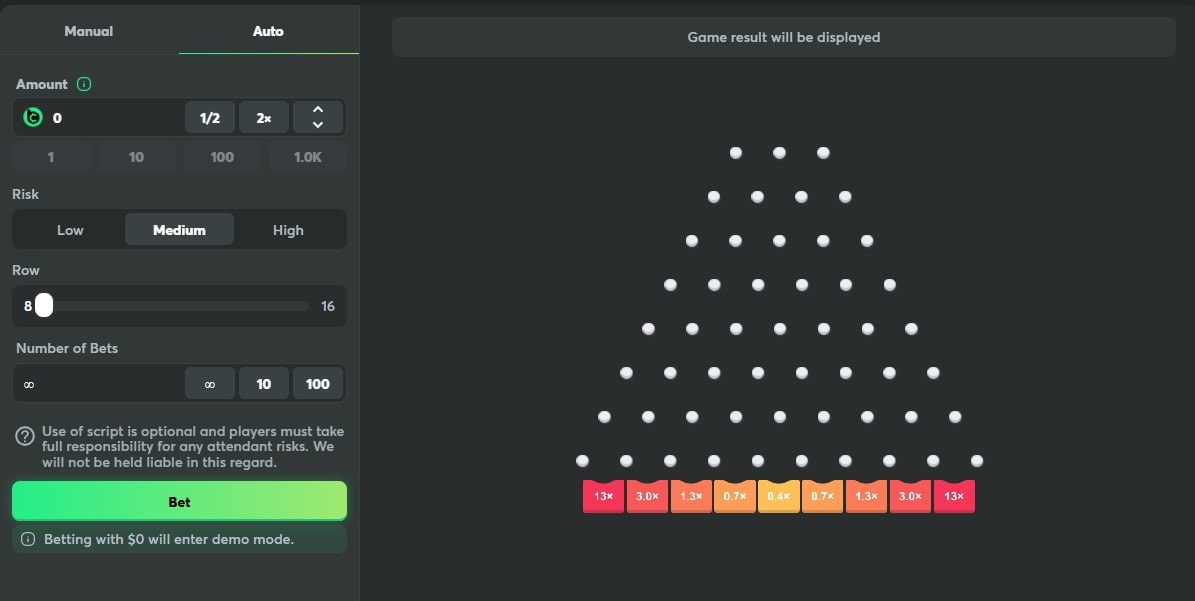Mastering Bankroll Management in Crash Games: A Path to Maximum Profit
For enthusiasts of online crash games, understanding how to manage your bankroll effectively is crucial for maximizing profits and minimizing losses. Crash games, which include a variety of interactive and often fast-paced betting experiences, can be highly entertaining and rewarding. From the unpredictability of a plinko ball bouncing down a pegboard to the thrill of watching a multiplier increase in real-time, these games offer an adrenaline rush like no other. However, the excitement can quickly turn into financial stress if players do not approach these games with a solid bankroll management strategy.

Understanding Bankroll Management
Bankroll management refers to the practices and strategies used by players to control their spending and betting amounts in gambling activities. It's about setting limits, understanding risk, and making informed decisions to protect your funds while aiming for profit. Effective bankroll management is not just about winning; it's equally about not losing more than you can afford. In the context of crash games, where outcomes are often unpredictable and can be influenced by a wide range of factors, having a well-thought-out bankroll management plan is essential.
Setting Your Bankroll
The first step in managing your bankroll for crash games is to determine how much money you are willing to allocate for gambling. This amount should be separate from your essential funds, such as those for living expenses, savings, and emergencies. It's crucial to only gamble with money that you can afford to lose. Once you've decided on your bankroll, you can then consider how to allocate it across different sessions or games.
Session Bankroll and Bet Sizing
Divide your overall bankroll into smaller portions for each gaming session. This approach helps in managing risk and ensures that a bad session doesn't deplete your entire bankroll. Bet sizing is another critical aspect; it involves determining how much to bet on each round or game. A common strategy is to bet a small, consistent percentage of your session bankroll. This percentage should be low enough to withstand a series of losses but high enough to generate significant profits when you win.
Strategies for Managing Your Bankroll in Crash Games
Several strategies can help you manage your bankroll effectively in crash games. One popular approach is the Martingale system, where you double your bet after each loss, so the first win would recover all previous losses and leave you with a profit. However, this system requires a significant bankroll and can be risky if you hit the table limits or experience a long losing streak.
Stop-Loss and Profit Targets
Implementing stop-loss and profit targets can also be beneficial. A stop-loss limit dictates when you should stop betting if you're on a losing streak, preventing further financial loss. On the other hand, setting a profit target helps you know when to stop playing if you're on a winning streak, securing your profits. These targets should be based on your overall bankroll management strategy and risk tolerance.
Psychological Aspects of Bankroll Management
Beyond the mathematical and strategic aspects, bankroll management also involves psychological discipline. It's easy to get caught up in the excitement of winning or the frustration of losing, leading to impulsive decisions that can harm your bankroll. Remaining calm, patient, and adhering to your strategy even in the face of variance is key to long-term success in crash games.
Emotional Control and Patience
Emotional control is about not letting your emotions dictate your betting decisions. Whether you're on a hot streak or experiencing a downswing, it's crucial to stick to your strategy. Patience is also vital; understanding that bankroll management is a long-term strategy and that immediate results are not always indicative of future success can help you stay focused and avoid making rash decisions.
Conclusion
In conclusion, managing your bankroll in crash games is a multifaceted approach that involves setting a budget, allocating funds wisely, choosing the right betting strategies, and maintaining emotional control. By understanding the importance of bankroll management and implementing effective strategies, players can enhance their gaming experience, minimize risk, and maximize their potential for profit. Remember, the goal of bankroll management is not just to win but to ensure that you can continue to enjoy the games you love without financial stress.
